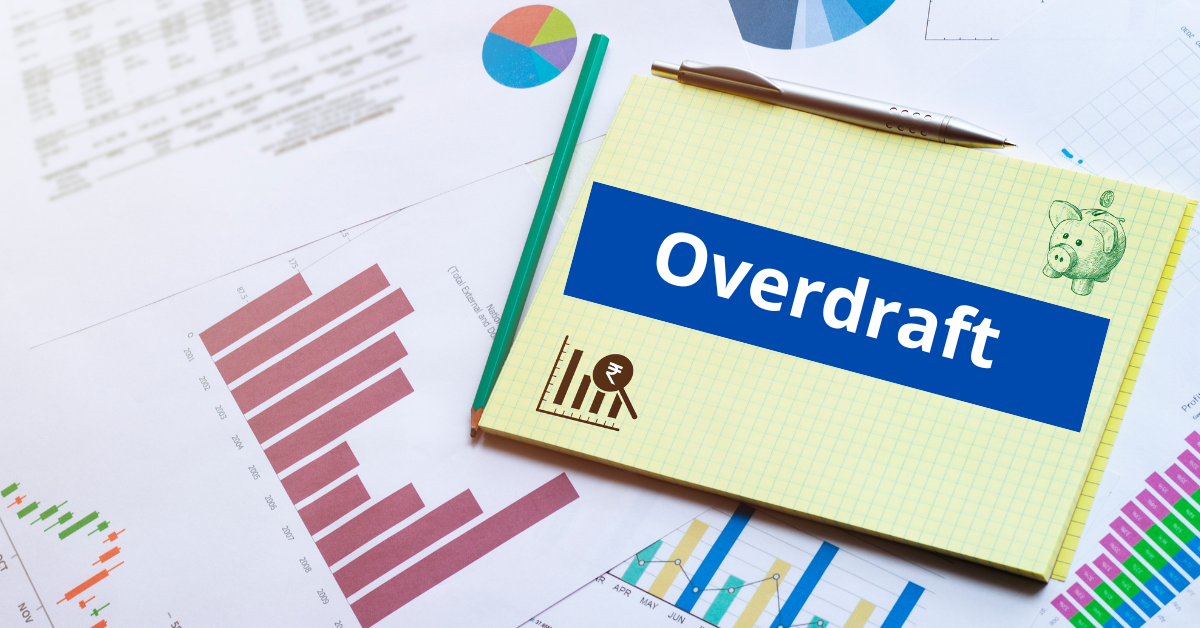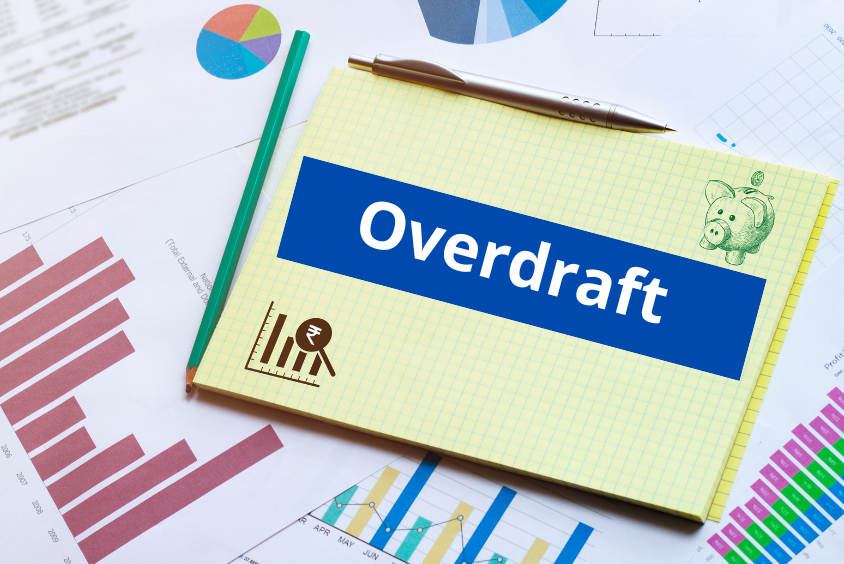Overdrafts have become quite common these days because of financial instability and a decrease in household income. With an overdraft facility, which is now available to almost cardholders, the bank allows you to transact for an amount that actually is not present in your account. This facility helps you save from any embarrassment which otherwise you would have to face because of the lack of funds in your account. This overdraft facility is quite a useful feature if used sensibly but if a cardholder fails to use this facility in a sensible manner, this facility can have an adverse impact on your credit score.

A credit score is a 3-digit number that lies between 300 to 900 and which is an important tool for analyzing the creditworthiness of an applicant. The credit issuing companies consider this score thoroughly before extending credit to an individual. An individual can avail better benefits with regard to credit cards and loans if he possesses a good credit score. But an individual has to be very cautious with respect to his credit score as in case of any default related to credit repayment, his credit score will be adversely affected. Apart from default, there are plenty of reasons because of which an individual’s credit score might get hurt but in this article, we will how a credit card overdraft will affect your credit score.
Suggested Read: What is a Credit Score and Why is it Important?
What is Credit Card Overdraft?
Overdraft is a situation wherein an individual does not have enough balance in his account to complete a transaction but the bank allows the transaction anyway. This is a type of loan that the bank provides to the individual on the basis of the relationship you hold with the bank. Since you have used an amount that is more than the amount that you actually have in your account, the individual will have to pay interest on the overdraft amount.
How does credit card overdraft affect your credit score?
A credit report includes all the details related to loans and credit cards. This report also contains your payment history. This credit report is sent to the Credit bureaus every month irrespective of the fact that whether you have availed of the overdraft facility or not. But if in case you have availed the overdraft facility and paid it back well in time, it will appear in your credit report as a zero balance.
But if in case you have availed the overdraft facility but you failed to repay the overdraft amount and interest charges levied by the bank within the due date, then this will have a negative impact on your credit score.
Following are a few ways in which an overdraft facility can affect your credit score –
- High credit utilization – If you are in a routine of availing of the overdraft facility, utilizing your credit limit to the maximum, and not paying the overdrawn amount on time, will lead to falling into a debt trap because of which your credit score will decline.
- Missing Payments – All the payments due on the credit card should be paid well in time if you do not want to see a decline in your credit score. Also, the payments related to the overdraft amount should be paid in full before the due date. Even if you continue to pay just the minimum amount due on your credit card for a good period of time, your credit score is very likely to drop.
- Higher Interest Rate – A credit cardholder has to pay interest on the amount which he is unable to pay by the due date. But if a credit card member uses the overdraft facility, he has to pay an interest rate on the overdrawn amount which is higher than the regular interest rate. When you have to pay high-interest rates to the banks, this can result in a debt cycle. The more the unpaid credit, the higher the chances of you being a defaulter.
Will paying off the overdraft improve the credit score?
Paying off the amount due on the credit card (whether normal or overdraft) will reduce the amount that you have borrowed from the bank. And by the Rule of Thumb, the lower the debt amount, the better it is. By paying off the overdraft amount, your overall debt amount will decrease and will in turn boost your credit score for good. Banks also prefer those applicants who are in a habit of returning the debt in a sensible manner and would like to extend you credit if you are willing to borrow.
Bottom Line
Overdraft is an amount that the cardholder withdraws from his account over and above the pre-defined limit set by the bank. The cardholder has to pay all the amount due on the credit card, including the overdrawn amount by the due date. This is because the overdrawn amount carries a higher interest rate than the interest rate on normal transactions. If he is unable to pay the amount by the due date, the interest charges on the amount will keep on accumulating and hence making it difficult for the cardholder to pay such amount. This will lead to missed payments and if he fails to pay this amount, his credit score will drastically drop. But if he continues to pay the bills on time, then the overdrawn amount will have no effect on the individual’s credit score.






